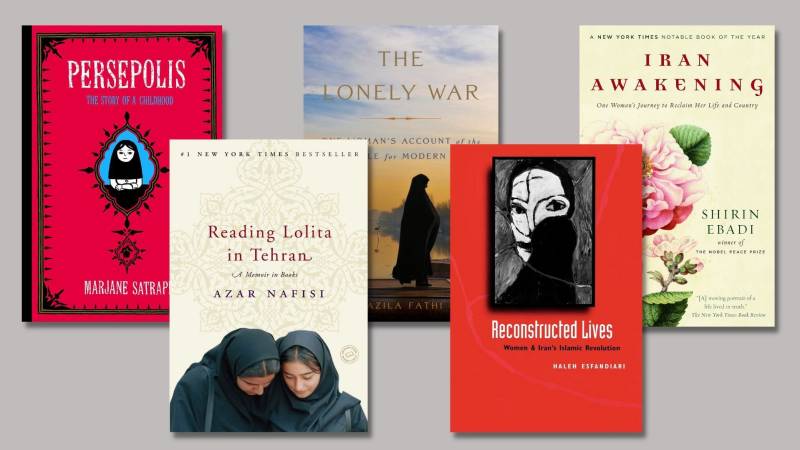Persepolis (I and II) by Marjane Satrapi, a French-Iranian illustrator and children’s author. The engaging memoir told in comics as well as its film adaptation are about her childhood in Iran and adolescence in Europe — and describe how the four-decade old revolution that toppled the Shah ended up oppressing the public it purported to liberate, especially women.
Until We Are Free: My Fight for Human Rights in Iran by Shirin Ebadi, the 2003 Nobel Peace Prize winner and judge who because of her sex was forced from office in the Islamic Republic — yet remained defiant. This is her second memoir.
Iran Awakening: One Woman’s Journey to Reclaim her Life and Country by Shirin Ebadi (with journalist Azadeh Moaveni). Her first memoir, chronicling her earlier years and how the Iranian revolution that so many embraced turned into a theocracy.
The Lonely War: One Woman’s Account of the Struggle for Modern Iran, by Nazila Fathi, a former New York Times reporter who seamlessly weaves her compelling story as a journalist ultimately forced to flee her native Iran with the post-revolution history of her country.
My Prison, My Home: One Woman’s Story of Captivity in Iran by Haleh Esfandiari, an Iranian-American scholar and former director of the Middle East Program at the Woodrow Wilson Center. The memoir delves into her arrest on false charges and her time at the notorious Evin Prison.
Reconstructed Lives: Women and Iran’s Islamic Revolution by Haleh Esfandiari, who presents interviews with Iranian professional and working women and their dramatic accounts about what has happened to them following the 1979 revolution.
Women and Revolution in Iran by Guity Nashat, a historian and researcher who edited this collection of essays featuring various perspectives on the participation of women in the 1979 Islamic revolution in Iran and its complexities.
Between Warrior Brother and Veiled Sister: Islamic Fundamentalism and the Politics of Patriarchy in Iran by Minoo Moallem, a professor of gender and women’s studies at the University of California at Berkeley. She analyzes modern Iran and, while critical of the treatment of women, sets aside stereotypes of Islam and Muslims as fanatical and backward.
Honeymoon in Tehran: Two Years of Love and Danger in Iran by Azadeh Moaveni, former journalist who directs the Gender and Conflict Program at the International Crisis Group. This is her second memoir, an engaging account of her personal and professional life in Tehran during the rise of populist President Mahmoud Ahmadinejad.
Reading Lolita in Tehran by Azar Nafisi, an English literature professor. This bestselling memoir about a clandestine book club she hosts at her home in Tehran draws readers in, but has been criticized by many in the Iranian diaspora and some non-Iranians for portraying Iranian themes through a narrow, Western lens.

9(MDAxOTAwOTE4MDEyMTkxMDAzNjczZDljZA004))

